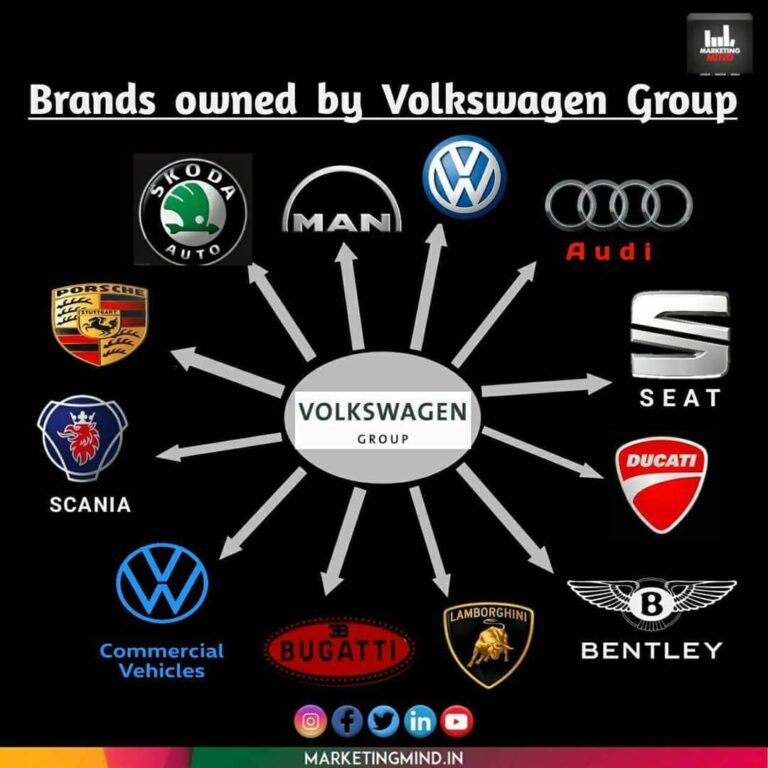Looking For A Fuel Truck On Craigslist: A Comprehensive Guide
Looking For A Fuel Truck On Craigslist: A Comprehensive Guide cars.truckstrend.com
The hum of a diesel engine, the distinct smell of fuel, and the sight of a robust tank on wheels – for many businesses, farmers, construction crews, and remote operations, a fuel truck isn’t just a vehicle; it’s a critical asset. It represents autonomy, efficiency, and the uninterrupted flow of work. But acquiring such a specialized piece of equipment can be a significant investment, often pushing buyers towards the used market. Among the various platforms for pre-owned vehicles, Craigslist stands out as a vast, decentralized marketplace where deals can be found, but also where caution is paramount.
This comprehensive guide will navigate the intricate process of looking for a fuel truck on Craigslist, transforming what can seem like a daunting task into a structured, manageable search. We’ll delve into the appeal of Craigslist, the essential preparatory steps, effective search strategies, crucial inspection points, and the often-overlooked regulatory landscape, ensuring you make an informed and safe purchase.
Looking For A Fuel Truck On Craigslist: A Comprehensive Guide
Why Craigslist for a Fuel Truck? Understanding the Appeal (and the Risks)
Craigslist, at its core, is a local classifieds website, famous for its user-to-user transactions. This direct interaction model offers both compelling advantages and significant drawbacks when it comes to specialized equipment like fuel trucks.
The Appeal:
- Cost-Effectiveness: Private sellers often don’t have the overhead of dealerships, leading to potentially lower prices. You might find older models or "diamond in the rough" deals that are significantly cheaper than new or even certified used alternatives.
- Wide Geographical Reach (Within Reason): While primarily local, Craigslist allows you to broaden your search radius, accessing a wider pool of available trucks than you might find through traditional local dealers.
- Variety of Options: From small, pickup-mounted transfer tanks to full-sized commercial dispensers, Craigslist hosts a diverse range of fuel trucks catering to different capacities and needs. You might find specialized setups that aren’t readily available elsewhere.
- Direct Negotiation: The platform facilitates direct communication with sellers, allowing for more flexible negotiation on price and terms.

The Risks:
- "As-Is" Sales: The vast majority of Craigslist sales are "as-is," meaning no warranties or guarantees. Once you drive it off, any issues become your responsibility.
- Lack of Transparency: Sellers might not disclose all known issues, or they may lack detailed maintenance records. Verifying the truck’s history can be challenging.
- Scams and Fraud: Unfortunately, Craigslist is a known breeding ground for scams, from misrepresented vehicles to outright fraudulent listings.
- No Financing Options: Unlike dealerships, private sellers on Craigslist typically require cash or a secure bank transfer, with no in-house financing available.
- Condition Variability: Trucks range from meticulously maintained to barely running. It requires a keen eye and often professional help to differentiate.

Understanding these dynamics is the first step towards a successful Craigslist fuel truck acquisition.
Preparing for Your Search: Homework Before You Click
Before you even type "fuel truck" into the search bar, significant preparatory work is required. This isn’t just about finding a truck; it’s about finding the right truck for your specific needs, while also understanding the legal and financial implications.
1. Define Your Needs Precisely:
- Capacity: How many gallons do you need to transport daily or per trip? Common sizes range from 100-gallon pickup-bed tanks to 3,000+ gallon commercial tankers.
- Fuel Type: Will it primarily carry diesel, gasoline, or both? Some trucks are designed for specific fuel types due to material compatibility and safety features.
- Chassis Type: Do you need a light-duty pickup truck conversion, a medium-duty (e.g., Ford F-Series, International) for moderate loads, or a heavy-duty semi-truck setup for large-scale operations?
- Dispensing Equipment: What kind of pump, hose, nozzle, and meter system do you require? Is flow rate important? Do you need a DEF (Diesel Exhaust Fluid) tank and pump alongside fuel?
- Safety Features: Look for features like baffled tanks (to prevent sloshing), emergency shut-offs, static grounding reels, spill containment, and proper venting.
- Intended Use: Will it be for personal farm use, commercial delivery, construction site fueling, or emergency services? This dictates regulatory requirements.
2. Budgeting Beyond the Purchase Price:
The sticker price is just the beginning. Factor in:
- Maintenance & Repairs: Used trucks, especially specialized ones, will likely need immediate or future repairs.
- Insurance: Commercial vehicle insurance, especially for hazardous materials, can be costly.
- Registration & Licensing: Fees vary by state and vehicle type.
- Regulatory Compliance Upgrades: You might need to invest in upgrades to meet current DOT or state regulations.
- CDL & Hazmat Endorsement: If the truck’s Gross Vehicle Weight Rating (GVWR) is over 26,001 lbs or it carries placarded amounts of hazardous materials, you or your driver will need a Commercial Driver’s License (CDL) with a Hazmat endorsement.
3. Understand Legal & Regulatory Requirements:
This is arguably the most critical and often overlooked aspect. Fuel trucks are subject to stringent regulations due to the hazardous nature of their cargo.
- Federal (DOT): The Department of Transportation has extensive rules regarding vehicle maintenance, driver qualifications, placarding, and spill prevention.
- State & Local: Each state has its own specific requirements for vehicle registration, emissions, and hazardous material transport. Local ordinances might also apply.
- Hazmat Endorsement: For any vehicle transporting hazardous materials in quantities requiring placarding (typically over 1,000 lbs for flammable liquids), the driver must have a Hazmat endorsement on their CDL.
- Tank Inspections: Fuel tanks, especially those over a certain capacity, require periodic inspections (e.g., DOT 406 or similar specifications). Ensure any tank you consider has valid inspection certificates or is capable of passing one.
Actionable Insight: Consult with a commercial vehicle expert or your state’s DOT office BEFORE purchasing to fully understand the legal obligations associated with operating a fuel truck of your desired size and type.
Navigating Craigslist: Effective Search Strategies
With your needs defined and legal homework done, it’s time to hit Craigslist. Smart search strategies can significantly improve your chances of finding a suitable truck.
1. Master Your Keywords:
Don’t just search for "fuel truck." Use a variety of terms:
- "Diesel truck"
- "Gasoline truck"
- "Refuel truck"
- "Tanker truck"
- "Service truck with fuel tank"
- "Fuel delivery truck"
- "Farm fuel truck"
- Include brand names (Ford, Freightliner, Peterbilt, Kenworth, International) and tank capacities (e.g., "1000 gallon fuel truck," "2000 gal diesel").
- Consider related terms like "water truck" if you’re looking for a chassis that could be converted, but be extremely cautious with conversions.
2. Utilize Location Filters:
Craigslist is localized, but most users can search wider areas. Expand your search radius beyond your immediate city to nearby regions or even entire states if you’re willing to travel for the right deal.
3. Set Price Filters:
Use the price range filters to narrow down results to your budget. Be realistic – very low prices often indicate significant issues or scams.
4. Browse Multiple Categories:
While "Heavy Equipment" or "Commercial" might be obvious, sometimes sellers list fuel trucks under "Trucks by Dealer," "Trucks by Owner," or even "Farm & Garden."
What to Look For in a Listing: Red Flags & Green Lights
The listing itself is your first point of contact with the truck. Learn to read between the lines.
Green Lights:
- Multiple, Clear Photos: High-resolution images from various angles (exterior, interior, engine bay, tank, pumping equipment, odometer).
- Detailed Description: Comprehensive information including year, make, model, mileage, engine type, transmission, tank capacity, pump specs, recent maintenance, reason for selling, and any known issues.
- VIN Provided: A seller willing to provide the Vehicle Identification Number (VIN) upfront is a good sign of transparency.
- Maintenance History Mentioned: Even if no records are provided, a mention of regular maintenance is positive.
- Professional Appearance: The truck in the photos looks reasonably clean and well-maintained.
Red Flags:
- Generic or Stock Photos: Indicates a potential scam or misrepresentation.
- Vague Descriptions: Lacks specific details, mileage, or maintenance info.
- Unusually Low Price: If it seems too good to be true, it probably is.
- Pressure Tactics: Seller tries to rush you into a decision or demands immediate payment.
- No VIN or Refusal to Provide: A major red flag. Without a VIN, you cannot perform background checks.
- Refusal to Meet in Person or Allow Inspection: Absolute deal-breaker.
- Requests for Wire Transfers or Gift Cards: Classic scam tactic.
The Inspection & Verification Process: Don’t Skip This Step!
This is where the rubber meets the road. Never, ever buy a fuel truck (or any significant vehicle) sight unseen.
1. Initial Contact & Questions:
Before driving out, call or message the seller. Ask specific questions:
- "What’s the full VIN?"
- "What’s the actual mileage?"
- "Are there any known leaks (fuel, oil, air)?"
- "When was the last time the pump system was serviced?"
- "Has the tank undergone any recent inspections (e.g., hydrostatic testing, visual internal inspection)?"
- "Why are you selling it?"
2. In-Person Inspection (Yourself or a Mechanic):
- Chassis: Check for significant rust, frame damage, suspension issues, and tire condition (tread depth, cracks).
- Engine & Drivetrain: Look for oil or coolant leaks, listen for unusual noises during start-up and operation, check fluid levels. Test the transmission through all gears.
- Fuel Tank Integrity: This is paramount. Look for dents, patches, excessive rust, or signs of leaks. Inspect welds. Check the condition of baffles (if visible), venting system, and bonding/grounding points. Ensure the tank meets appropriate DOT specifications (e.g., DOT 406 for flammable liquids).
- Pumping System: Inspect the pump for leaks or damage. Check the condition of hoses (cracks, kinks), nozzle, and meter. Test the flow and accuracy if possible.
- Safety Features: Verify the functionality of emergency shut-offs, fire extinguishers, and spill kits.
- Lighting & Electrics: Ensure all lights, wipers, and dashboard gauges work.
- Documentation: Verify the title is clean and matches the VIN on the truck. Ask for any maintenance records, inspection certificates, or previous registrations.
3. Professional Pre-Purchase Inspection (Highly Recommended):
For a specialized vehicle like a fuel truck, hiring a qualified mechanic or a specialized commercial vehicle inspection service is a non-negotiable step. They can identify hidden mechanical issues, assess the integrity of the fuel system, and verify compliance with safety standards, saving you potentially tens of thousands of dollars in future repairs or regulatory fines.
4. VIN Check & History Report:
Once you have the VIN, use services like Carfax, AutoCheck, or the National Insurance Crime Bureau (NICB) to check for:
- Accident history
- Salvage, flood, or fire damage titles
- Odometer discrepancies
- Lien information (make sure there’s no outstanding loan on the truck)
- Recall information
Actionable Insight: Schedule your viewing during daylight hours. Bring a flashlight, a magnet (to check for body filler over rust), and perhaps a friend who knows about trucks.
Negotiation and Purchase: Sealing the Deal Safely
You’ve found the right truck and it passed inspection. Now it’s time to close the deal.
1. Negotiation:
- Be prepared to negotiate. Use any identified issues from the inspection as leverage.
- Have a maximum price in mind and be ready to walk away if the seller doesn’t meet your terms.
- Factor in potential repair costs that your mechanic identified.
2. Payment:
- Avoid cash for large sums. It’s risky for both parties.
- Secure methods: A cashier’s check or direct bank wire transfer are generally safest.
- Meet at a bank: If possible, conduct the transaction at your bank, where the bank staff can verify the cashier’s check and help with the transfer of funds and title.
3. Paperwork:
- Title Transfer: Ensure the seller provides a clear title, free of liens. Verify their identity against the name on the title.
- Bill of Sale: Draft a comprehensive bill of sale that includes:
- Buyer and seller names, addresses, and contact information.
- Vehicle make, model, year, VIN, and mileage.
- Agreed-upon purchase price.
- Date of sale.
- "As-is" clause (if applicable, which it almost always is on Craigslist).
- Signatures of both buyer and seller.
- Release of Liability: In some states, sellers need to file a "release of liability" form with the DMV to protect them from future issues with the vehicle. Ensure this is handled.
Sample Estimated Price Ranges for Fuel Trucks on Craigslist
It’s crucial to understand that prices on Craigslist are highly variable. They depend heavily on the truck’s age, condition, mileage, make, model, tank capacity, pumping equipment, and geographic location. The table below provides estimated ranges for common types of used fuel trucks you might find. These are not guarantees and are subject to significant fluctuation.
| Fuel Truck Type / Capacity | Estimated Craigslist Price Range (USD) | Key Factors Influencing Price |
|---|---|---|
| Small (100-300 Gallons) | $5,000 – $15,000 | Pickup-mounted, skid units, or small utility trucks. Often older, less sophisticated pumps. Condition of the base truck is key. |
| Medium (500-1,000 Gallons) | $15,000 – $40,000 | Medium-duty chassis (e.g., F-550, International). More robust pumps, meters. Age, mileage, and recent maintenance play a big role. |
| Large (1,500-3,000 Gallons) | $40,000 – $80,000 | Heavy-duty commercial chassis. Suitable for larger operations. Price highly dependent on chassis condition, tank certification, and pumping equipment. |
| Heavy (3,000+ Gallons) | $80,000 – $150,000+ | Semi-truck setups. Often come with advanced dispensing systems. Regulatory compliance and tank inspection status are major price drivers. |
| Specialized (DEF, Aviation Fuel) | $20,000 – $100,000+ | Varies widely based on specific equipment, capacity, and the niche application. Often higher due to specialized components. |
Note: These ranges are for the truck and tank/equipment combined. They do not include costs for transport, immediate repairs, regulatory upgrades, insurance, or licensing.
Conclusion: A Calculated Risk, a Rewarding Outcome
Looking for a fuel truck on Craigslist is not for the faint of heart. It demands meticulous research, unwavering caution, and a willingness to walk away if a deal feels off. The allure of significant cost savings is real, but it comes hand-in-hand with the inherent risks of a largely unregulated marketplace.
By thoroughly defining your needs, understanding the complex regulatory landscape, employing smart search tactics, conducting exhaustive inspections (preferably professional ones), and executing a secure transaction, you significantly mitigate these risks. A well-researched and carefully vetted Craigslist purchase can indeed yield a valuable asset that serves your operational needs efficiently and economically. Remember, when dealing with hazardous materials, safety and legal compliance are not just recommendations; they are absolute necessities.
Frequently Asked Questions (FAQ)
Q1: Is it truly safe to buy a fuel truck on Craigslist?
A1: It can be safe, but only if you exercise extreme caution and perform extensive due diligence. The safety lies in your actions: thorough inspections (professional ones), VIN checks, verifying documentation, and using secure payment methods. Never compromise on safety checks.
Q2: What permits and licenses do I need to operate a fuel truck?
A2: This varies significantly based on the truck’s GVWR, the type and quantity of fuel, and your intended use. Generally, if the GVWR is over 26,001 lbs or you’re carrying placarded amounts of fuel (typically over 1,000 lbs for flammable liquids), you’ll need a Commercial Driver’s License (CDL) with a Hazmat (H) endorsement. Federal DOT regulations, state-specific rules, and local ordinances will also apply. Always consult your state’s DMV/DOT and a legal professional before purchase.
Q3: How can I tell if the fuel tank itself is safe and compliant?
A3: Look for a DOT specification plate (e.g., DOT 406 for flammable liquids). This indicates it was built to certain standards. Inquire about the last inspection (hydrostatic testing, visual internal inspection). Any signs of significant rust, dents, or non-professional repairs are major red flags. A professional inspection is crucial for tank integrity.
Q4: Should I always get a pre-purchase inspection by a professional mechanic?
A4: Absolutely, yes. For a specialized vehicle like a fuel truck, a professional inspection is almost mandatory. They can identify hidden mechanical issues, assess the fuel system’s integrity, and confirm regulatory compliance, which could save you from costly repairs or legal issues down the line.
Q5: Can I finance a fuel truck purchased through Craigslist?
A5: It’s very difficult. Most banks and lenders do not offer traditional financing for private-party sales on platforms like Craigslist, especially for specialized used equipment. You would likely need a personal loan, a business loan, or cash to complete the purchase.
Q6: What’s the biggest risk when buying a used fuel truck on Craigslist?
A6: The biggest risk is purchasing a truck that is either mechanically unsound (leading to massive repair costs) or, more critically, non-compliant with hazardous materials transportation regulations. Non-compliance can result in severe fines, legal liabilities, and safety hazards. Scams (misrepresented vehicles, title fraud) are also a significant risk.







